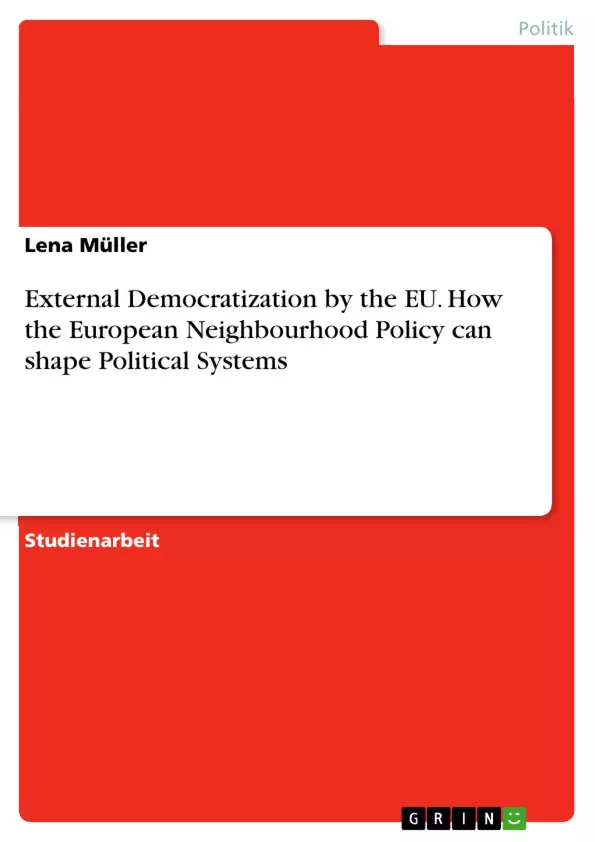This paper will focus on the two parts of the promotion of democracy and the Rule of Law by the EU but also Russia as a counterpart to it. It is indispensable not to see a connection between both influences, the European one and the soviet or Russian one because of the soviet history of the country. We also should take into consideration the geopolitical aspect of this threefold relationship.
The collapse of Communist systems in Central and Eastern European Countries (CEECs) marked a fundamental turning point in their domestic development. The transformation of post-communist systems included not only the partly won democratization of the political systems, but also the transformation of virtually all social subsystems. Over the years, it soon became apparent that the former communist states were performing very differently in this task and achieved very different successes.
While in Hungary, Poland, the Czech Republic and the Baltic States, functioning democratic systems and pluralistic societies have been established relatively quickly, many of the states that emerged from the collapse of the Soviet Union remained in stagnation and chaos or developed into authoritarian systems. On the other hand some states evolved from some fundamental steps towards democratization like for example Georgia where the so called Rose Revolution, a peaceful change of power, took place. This revolution allowed the country not only to transition to another political system but also towards a change of Rule of Law in an echo of the European thought. Important to know in this case is that during the Rose Revolution in 2003 and right after this event the European Union (EU) increasingly supported Georgia through a diverse set of measures – especially covering the financial aspect in order to develop a more independent judicial system. Therefore, this paper will focus on the lack of judicial independence as a long-standing problem in Georgia, dating back to Soviet times. The EU is trying to solve this problem with the help of projects and agreements. Georgia is (progressively) approaching the EU by signing an association agreement in 2014 “in which the country undertook to pursue comprehensive reforms, particularly in the areas of democracy, the Rule of Law, human rights and basic civil liberties, good governance, market economy and sustainable development.”
Inhaltsverzeichnis
- Introduction
- Academic literature
- Concept
- Defining Rule of Law
- External factors of democratization
- Method
- Analysis
- Georgia after the Rose Revolution
- Georgian – European relationship
- The ENP as an instrument of external democratization
- Conclusion
- Sources
Zielsetzung und Themenschwerpunkte
Diese Arbeit befasst sich mit dem Einfluss der EU auf Georgiens politische und juristische Entwicklung im Kontext der Rose-Revolution. Insbesondere soll untersucht werden, inwiefern die EU durch ihre Maßnahmen die Rechtsstaatlichkeit in Georgien fördern konnte.
- Die Rolle der EU als normative Kraft in der Förderung von Rechtsstaatlichkeit und demokratischen Werten
- Der Einfluss der EU auf Georgiens politische und juristische System im Kontext der Rose-Revolution
- Die Bedeutung des ENP (Europäische Nachbarschaftspolitik) als Instrument zur Förderung der Demokratisierung
- Die Herausforderungen und Grenzen des Einflusses der EU auf Georgien
- Der geopolitische Kontext der Beziehungen zwischen Georgien, Russland und der EU
Zusammenfassung der Kapitel
- Introduction: Die Einleitung stellt den Hintergrund der Arbeit dar und beleuchtet die Relevanz der EU-Einflussnahme auf Georgiens politische und juristische Entwicklung nach dem Zusammenbruch des Kommunismus. Die Rose-Revolution wird als ein Wendepunkt in Georgiens Geschichte vorgestellt, der eine Transformation des Landes in Richtung Demokratie und Rechtsstaatlichkeit einleitete.
- Academic literature: Dieses Kapitel analysiert die bestehende wissenschaftliche Literatur zum Thema EU-Einfluss auf die Förderung von Rechtsstaatlichkeit und demokratischen Werten in der Europäischen Nachbarschaftspolitik. Es werden die unterschiedlichen Perspektiven auf die Ziele und Methoden der EU in diesem Bereich beleuchtet.
- Concept: Dieser Abschnitt beschäftigt sich mit der Definition von Rechtsstaatlichkeit im Kontext der EU-Standards sowie der Analyse von externen Faktoren, die zur Demokratisierung beitragen können.
- Method: Das Kapitel beschreibt die Forschungsmethode, die in der Arbeit verwendet wird, um die Forschungsfrage zu beantworten. Es werden die unabhängigen und abhängigen Variablen definiert.
- Analysis: In diesem Kapitel werden die Auswirkungen der Rose-Revolution auf Georgien untersucht, insbesondere die Rolle der EU und Russlands bei der Gestaltung des politischen und juristischen Systems. Die Bedeutung des ENP als Instrument zur Förderung der Demokratie wird im Detail betrachtet.
Schlüsselwörter
Die Arbeit konzentriert sich auf die Themen Rechtsstaatlichkeit, Demokratisierung, EU-Einfluss, Europäische Nachbarschaftspolitik (ENP), Rose-Revolution, Georgien, Russland, geopolitische Beziehungen, politische und juristische Systemtransformation.
Häufig gestellte Fragen
Wie fördert die EU die Rechtsstaatlichkeit in Georgien?
Die EU nutzt Instrumente wie die Europäische Nachbarschaftspolitik (ENP) und Assoziierungsabkommen, um Reformen im Justizsystem und bei den Menschenrechten finanziell und beratend zu unterstützen.
Was war die Bedeutung der Rose-Revolution für Georgien?
Der friedliche Machtwechsel im Jahr 2003 leitete eine Transformation des politischen Systems in Richtung Demokratie und eine stärkere Annäherung an europäische Standards ein.
Welche Rolle spielt Russland in diesem Prozess?
Russland fungiert oft als geopolitischer Gegenspieler zur EU und versucht, seinen Einfluss in der ehemaligen Sowjetrepublik Georgien aufrechtzuerhalten.
Was ist das Hauptproblem des georgischen Justizsystems?
Ein zentrales, historisch gewachsenes Problem ist der Mangel an richterlicher Unabhängigkeit, den die EU durch gezielte Projekte zu beheben versucht.
Was beinhaltet das Assoziierungsabkommen von 2014?
Georgien verpflichtete sich darin zu umfassenden Reformen in den Bereichen Demokratie, Rechtsstaatlichkeit, Marktwirtschaft und gute Regierungsführung.
- Quote paper
- Lena Müller (Author), 2018, External Democratization by the EU. How the European Neighbourhood Policy can shape Political Systems, Munich, GRIN Verlag, https://www.grin.com/document/535674



